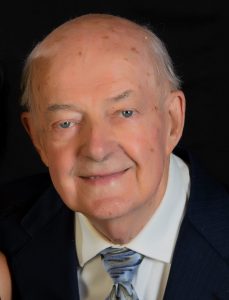
The three stages of Transforming Vision into Reality (TVR) are Jesus as our Savior (justification), Jesus as our Lord (sanctification), and the Great Commission (loving obedience). The Holy Spirit transforms our vision into reality as we focus on Jesus (Stages 1 and 2) and follow His plan (Stage 3). We’ve discussed the first two stages at length. We’ll close this series with the final stage, the Great Commission.
First, let’s understand more about the risks involved with caring for others and what it means to love them.
Risking to care
Respect is important. We’re taught to respect each other’s lives, possessions, and integrity: Thou shalt not kill, thou shalt not steal, thou shalt not bear false witness. We’re taught to respect God by not taking His name in vain, not worshipping other gods, and remembering our Creator on the day He sanctified and blessed.
Respect isn’t just good manners. It is a need that sits at the core of our nature because we’re created in God’s image. When we’re treated with disrespect, it damages our sense of self-worth, and we have to get that respect back. Justice is a way to restore it. That’s why it’s so important to families who’ve lost loved ones in horrific crimes to find closure, even decades later. Sometimes it isn’t about vengeance. It’s about restoring respect for the one they love.
Because of our core need, the Ten Commandments require us to respect all individuals regardless of how they treat us. But the commandments represent something far greater: love, because they’re based on God’s eternal law of love.
So what’s the difference between respect and love? Respect concerns behavior. We can be respectful of a stranger passing by. We see him and a moment later, we’ve forgotten him. Love, however, requires an emotional investment. Love makes us vulnerable. It brings us deep joy, but it also exposes us to the possibility of searing pain and loss.
We’re even warned about love: “Don’t get attached to that kitten, Jenny. We have to take her back.” Love hurts. The common response of a child who’s been hurt emotionally is “I don’t care anymore.” Even at a young age, children know they can protect themselves from pain by divorcing themselves from caring. One of the meanings of the word care is “grief.” So the easy solution to end the pain is to stop caring, which means to stop loving. We’re careful when we’re full of care, and we’re careless when we care less.
The world can be a scary place for those of us who have been hurt before. To avoid the pain, we learn to face life by putting on emotional hazmat suits. Safe inside our protective gear, we insulate ourselves from the emotional carnage that surrounds us. However, what we encounter through our suits is a sterile world. It’s a world where we see the strawberries, but they have no taste; we see the flowers, but they have no smell; we see the fire, but it has no heat; and we see the screams, but they make no sound. Why can’t I feel anything? Why doesn’t a terror bombing that blasts three hundred people seem to bother me anymore? Shouldn’t I care?
This lack of care has dire consequences to fulfilling the Great Commission and reaching out to others. Perhaps we can grasp this point even more by seeing how the pain of caring and love affected one great Christian.
Shadowlands
After fifty-eight years of being single and living the quiet, orderly, and solitary life of an Oxford English literature professor, C. S. Lewis fell in love and married Joy Gresham. Joy had bone cancer, which she would die from only four years later. Joy brought life to Lewis; she brought love to him and opened his guarded heart.
When Lewis would retreat from fear of the pain of losing his wife, Joy would expose his actions with words like, “You’ve arranged a life for yourself where no one can touch you.” Joy reminded Lewis of the need to engage his world, to be a part of it. Her words: “See yourself in the mirror, you’re separate from yourself. See the world in the mirror, you’re separate from the world. I don’t want that separation anymore.” Joy knew she was dying, and she wanted to savor life. She didn’t want to merely exist in a hazmat suit anymore. She wanted to love and be loved.
In the movie Shadowlands, Joy and Lewis go on a picnic together. While they relax on a blanket, it begins to rain and they have to run for cover. Safe under a shelter while the rain is drizzling down, Lewis expresses his feelings, but he’s hiding from the pain of knowing that he’s going to lose Joy. So he distances himself from that future and, unknowingly, from her.
“I don’t want to be somewhere else anymore,” Lewis admits. “Not looking around the corner anymore. Not over the next hill anymore. Just here now, that’s enough.”
Joy responds, “That’s your kind of happy isn’t it?” Lewis says it is.
“It’s not going to last, Jack.” (Jack was her name for him.)
“You shouldn’t think about that now,” Lewis says. “You shouldn’t spoil this moment.”
“It doesn’t spoil it; it makes it real,” Joy says. “Let me just say it — I am going to die. And I want to be with you then too. But the only way I can be with you then is if I am with you now.”
“Don’t worry about me, I’ll manage somehow,” Lewis responds.
Joy makes the point that the issue isn’t just managing but embracing the pain: “The pain then is part of the happiness now,” she says. “That’s the deal. Love me now.”
Ambassadors of love
Yes, love hurts, but love is real. There is no greater gift, no greater glory, no greater experience, no greater power, and no deeper reality than love, because love connects us with God. God is love (1 John 4:8). Love will not always mean suffering as it did for C. S. Lewis, but God suffers now because He cares about fallen, willful human beings who have been hurt and are bent on justice. They want others to feel the pain they feel.
One day all suffering will end, and paradise will begin. If we are to allow Jesus to rescue others through us and fulfill His Great Commission (Matthew 28:16-20), that opportunity is today.
Jesus has given us a purpose of eternal consequence. He wants to include us in His work, to share His love through us to a lost and dying world. That’s what the Great Commission is — taking the risk of being ambassadors of love (2 Corinthians 5:12-21).
As Christians, this should come naturally to us. We have access to God’s unconditional love. The power of that love moves people’s hearts; it transforms lives; it conquers evil. God has placed that power in our hands if we have the courage to transcend justice and join Christ in surrender and sacrifice, allowing His will to be done through us. Perfect love casts out fear” (1 John 4:18). That choice is ours.
When Shadowlands concludes, Joy has died. Lewis reflects with the words “Why love if losing hurts so much? I have no answers any more. Only the life I have lived. Twice in that life I’ve been given the choice: as a boy and as a man. The boy chose safety, the man chooses suffering. The pain now is part of the happiness then. That’s the deal.”
For the Christian, the suffering is now, but the joy lasts forever.
Commissioned to care
None of us should take God’s grace for granted. We receive blessings from God every day. And we shouldn’t believe that we deserve His grace. We didn’t deserve Christianity; it was given to us. Billions are born into other religions or no religion at all. Millions are indoctrinated into hate from the time they are young. Millions more are starving, and countless more suffer under corrupt and oppressive godless governments.
Who would I be now if I’d been born into a den of evil, abused, neglected, or addicted to crack from birth? Would I surrender to the pain and lose myself in alcohol and drugs? Or would I perpetuate evil by inflicting my pain onto the next generation? Who would I be now if I’d been indoctrinated in hate from the time I was a toddler? Who would I be now if I’d been born into a world of suffering and starvation and disease?
If we are to be a people who participate in God’s mission to seek and to save a hurting, dying world, we can’t just love those who love us back. We have to show more than just respect. We must cross the distance to real caring. We must love the unlovable as Christ did. We can’t do that in ourselves, but Jesus can. He wants to give us His Spirit and the power of His unconditional love. He wants to rescue a lost world through us. That’s what the Great Commission is all about.






